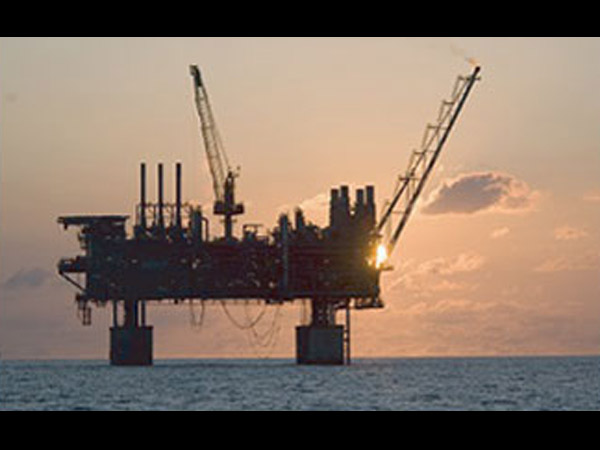COA rebuffs DOE, SolGen plea to let Malampaya gas firms keep P146.8-B underpayments

Malampaya natural gas plant. https://malampaya.com/
The Commission on Audit has rebuffed the appeal of the Department of Energy and the Office of the Solicitor-General to let the Malampaya gas consortium keep about P146.8 billion in underpayments that were not collected by the government.
In a 15-page decision dated Jan. 24 and made public this week, COA sustained its April 6, 2015 ruling that the government should not have shouldered the consortium’s income tax liabilities in computing its share of net revenues derived from the offshore natural gas field.
“If this Commission will not put an end to this illegal ‘tax assumption’ scheme, the government will continue to bleed billions and billions of funds that can and should be used for the very purpose intended by law,” read the decision signed by Commissioners Jose Fabia and Isabel Agito.
Chairperson Michael Aguinaldo inhibited from the case.
While the government claimed this decision would discourage investment and harm the country’s interest, CoA stressed that ensuring greater profits would allow the country to develop its energy resources, including renewable energy.
Ordered to pay the uncollected amounts from 2002 to 2016 were state-owned Philippine National Oil Company Exploration Corporation and private oil firms Shell Philippines Exploration B.V. and Chevron Malampaya LLC.
Under Presidential Decrees Nos. 87 and 1459, the government is entitled to a minimum of 60 percent of the net revenue or the difference between gross income and operational expenses. The maximum service fee of contractors is capped at 40 percent of the net revenue.
But, the government has considered the consortium’s income tax liabilities part of its minimum 60-percent share under a so-called “tax assumption scheme” provided by Service Contract No. 38. This allowed the contractors to keep the full 40-percent portion for themselves.
By refusing to pass the tax liabilities on to the contractors, the government effectively eroded its 60-percent share to only 34.03 percent, according to the findings of then-director and now-assistant commissioner Rizalina Mutia.
Overstepping authority?
The DoE accused CoA of overstepping its authority in issuing the April 2015 ruling, unduly amending the provisions of PD 87 and 1459, and encroaching upon the discretionary powers of the DoE and the President.
The government argued that COA disregarded the provisions stating that “the share of the Government, including all taxes, shall not be less than sixty percent” of the net revenues.
COA, however, stressed that “tax assumption” lessened the government’s share and put it below the 60-percent threshold. It added that nothing in the laws “would suggest that the government cannot receive more than 60 percent.”
The decision cited Section 8 of PD 87, which mandated that “the contractors shall be liable each taxable year for Philippine income tax,” and not the government.
“Without any express provision allowing contractors to pass on the burden to the government, the payment of taxes is an obligation of contractors and not of the government,” read the decision signed by Commissioners Jose Fabia and Isabel Agito.
The tax assumption scheme even made the Malampaya consortium “immune” to income tax changes since the government would shoulder the burden anyway.
SolGen’s arguments
While the April 2015 decision led to an outcry among the DoE and the industry stakeholders, the Office of the Solicitor-General under the Duterte administration formally joined the case in September 2017 to defend the existing arrangement.
The OSG argued the Duterte administration’s policy is to “honor the government’s contractual obligations” under SC No. 38.
It claimed the CoA decision could open the government to additional suits by other companies enjoying “tax assumption” benefits and create “negative impression in the eyes of investors.”
CoA rejected these contentions and said the non-impairment of contractual obligations only applies to subsequent legislation, not quasi-judicial decisions like those handled by the state auditor.
Stressing its function as the government’s independent audit institution, CoA said it was not a party to SC No. 38 and was not barred from questioning the contract in the exercise of its role to safeguard public funds.
Checks and balances
CoA even said following the OSG’s line of thinking would “destroy the principles of accountability and checks and balances, which are the very foundations of our cherished democracy and republicanism.”
CoA also rejected the argument that its decision would cause “irreparable harm” to the country’s interest, citing a lack of evidence and data regarding adverse effects to the economy.
While the government and the consortium tried to justify the deal by comparing it with those of major energy producers such as Indonesia, Qatar, Syria, Oman and Egypt, COA brushed aside those “model agreements” since the circumstances in those countries “might not be comparable to those of the Philippines.”
The DoE tried invoking the Philippines’ lack of substantial oil and natural gas deposits, but CoA said this was an “even stronger and more compelling reason” for the government to charge taxes so the country “can get its fair share of the proceeds of the utilization and depletion” of what little energy resources it has.














